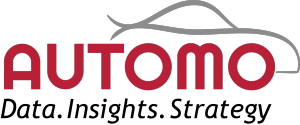
Health can depreciate anywhere and at any time such as while driving a car in heavy rush, the strain to drive safe and keep an active pressure on the brake can make you stressful and difficult to breathe which can eventually alleviate your heart rate. There is a need to monitor health while driving so that in an emergency situation, appropriate action can be taken. The connectivity technologies are increasing the convergence opportunities for many industries especially healthcare. The new trend in the healthcare industry suggests digitalization, internet of things and artificial intelligence deployment. This further allows the end user to employ smart devices at home and at workplace to keep tap of any imbalances. We believe that the list of diagnosis will be extended to smart automotive in the future. Many automakers have started the R&D initiative to provide healthcare related services in a smart car.
The new technologies such as satellites and 5G have laid the foundation to link the automotive industry with other industries which are outside the ecosystem. This will pave the way for cross-segment industry partnerships. In the future, the cars will witness the built-in application for cloud-enabled platform which will further boost the adoption of health and well-being. The first step will be to integrate the devices such as heart rate measuring sensors in the seat belts, air condition humidifiers, and wearable and other health-related applications. In the second stage, windshield which is enabled with augmented reality and the vehicle dashboard will be employed to display data related to diagnosis such as providing in vehicle warnings signage on the vitals of the passengers. This will also open up a new revenue stream for the OEM’s.
Submit RFP @ https://automo.ai/Research/the-Oracle-magazine/Automotive-and-Healthcare/rfp
The data giants of today such as Google, Amazon, IBM, and others will start offering healthcare related services from medium to long term. Healthcare will be data-based, democratized and will be driven by the consumers. New players are slowly entering the market and it is high time for the mobility industry to enter the market as well.
At present, you might not find similarities between your car and healthcare but in future, these two industries will be converged to share the key characteristics such as digitalized, individualized, and personalized healthcare. This will be an extension of OEM’s vision on passenger safety. The built-in cloud-enable applications will be crucial to enable Healthcare in Automotive.
Consumer preferences and dynamic trends have ensured to stay ahead of the competition, OEM focuses more on innovation. At present, the OEM’s are currently drawing the synergies from other allied industries to provide healthcare solutions in the futuristic vehicles. Different vendors in the value chain bring new solutions hence creating a diverse ecosystem for healthcare solutions.
The delivery of healthcare services outside the hospital has fueled in the trend of providing the healthcare diagnose inside the car and are expected to be the new point of delivery for monitoring, basic diagnosing and communicating the health-related parameters with individuals.
Talk to one of our representative @ https://automo.ai/Research/the-Oracle-magazine/Automotive-and-Healthcare/callSchedule
Automakers are in the process to develop a mechanism where the drivers’ heart attack will be anticipated in advance and the system will be further enabled to trigger the emergency services such as safe halt, emergency vehicle warning, emergency electronic brake light and others and at the same time alerting the doctors. Automotive OEMs’ such as Toyota, Ford, Audi, BMW, and other players are working towards providing the health-related offering to consumers in their cars. The National Highway Traffic Safety Administration (NHTSA) and the European New Car Assessment Programme (EURO NCAP) are assessing the standardized safety inside the cars.
Ford will be the pioneer if they manage to bring health and wellness into the car. Ford has heavily invested in the convergence of health and wellness with automotive R&D. The company is planning to integrate sensors in the driver and passenger seat to monitor their EHG. In addition, they are planning to embed sensors in the seatbelt to monitor heartbeat. Toyota is experimenting with monitoring cardiovascular functions. BMW is working with the Munich Technical University to detect driver perspiration, oxygen saturation, pulse, and other parameters through the steering wheel. Universities and automakers are collaborating to provide unique health-related features with their technology.
Another push to this convergence scenario will be provided by the aging population and the way it will be shaping customer demand and behavior. By 2030, people over 50 are expected to surpass people with 20 years of age. This will further change the requirement from the end user and the automakers need to come up with a new solution catering to the group of certain age.
The security and privacy concerns in providing healthcare and the stringent regulations for Food and Drug Administration is expected to hinder the growth of medical devices in the future. To be successful in this market, the OEM’s need to build partnerships, engage with customers and build a structural business model which also includes healthcare elements.
About Automo: Automo’s global consulting team is exclusively positioned to identify and assess opportunities related to growth but also empowers our client to create strategies for the future which further enables them to convert goals into reality. Automo brings AI based Market intelligence to the Automotive Industry, in an easy to use dashboard format, to always keep track about the markets you care about on a daily basis. Any other custom requirements can be discussed with our team, drop an e-mail to sales@automo.ai or reach us at (+1) 113025664665 to discuss more about our consulting services.